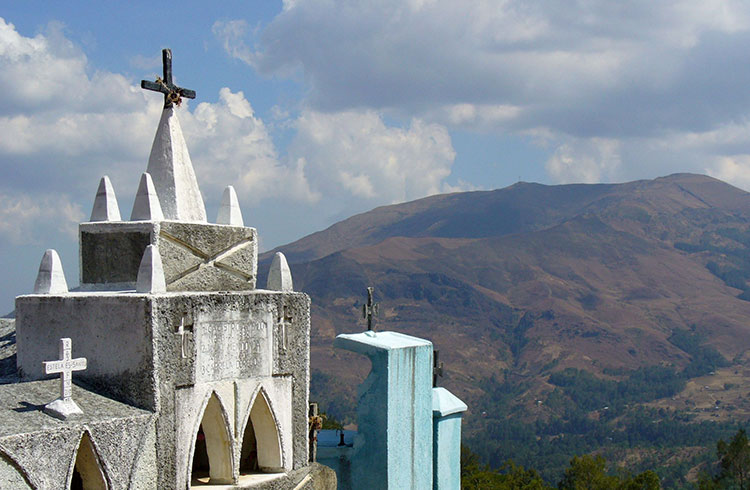Travel Tips: Understanding Political Tension in East Timor
Coronavirus (COVID-19) and travel: The situation around the world is changing dramatically. Various governments have changed their travel warnings to restrict travel during this time. To understand how this may impact cover under your policy, please go to our FAQs and select your country of residence.
For the latest travel warnings and alerts around the world, read about lockdowns and border restrictions.
Timor-Leste is only just emerging from a long struggle for independence from Indonesia. Here are a few safety tips to know before you go.
 Photo © Getty Images/yeowatzup
Photo © Getty Images/yeowatzup
Timor-Leste is only just emerging from a bruising 25-year struggle for independence from Indonesia.
In 1975, months after Portugal gave up its 400-year colonial rule of the country, the Indonesian military rolled across the border from West Timor. It wasn't until 1999, following the United Nations-sponsored act of self-determination, Indonesia relinquished control and Timor L'Este became the first new sovereign state of the 21st century.
However, given this history, and the battle with extreme poverty, the nation of one million people remains politically unstable.
Since independence on 20 May 2002 there have been outbreaks of armed violence in 2006 and 2008. In 2008, the country's President, Jose Ramos-Horta, was shot in a botched coup.
While the current situation is generally calm underlying political tensions remain and the security situation could deteriorate with little warning.
There is much division in the country; between Timor L'Esteese with pro-Indonesian views and others, between rival political parties, between the police and the army and even between sections of the military.
Multiple police forces
Because of this division, Timor L'Este still has international troops on the ground.
These troops were originally brought in to quell the violence and anarchy that accompanied the island's referendum vote for independence and the subsequent withdrawal of Indonesian forces. They have been in the country ever since.
As a consequence at present law and order is maintained by the United Nations Police (UNPOL) working with the local police.
Additional security is provided by the International Stabilisation Force which consists of the previously mentioned Australian and New Zealand Defence Forces personnel.
In 2009 the United Nations commenced a phased, district-by-district, handover of policing responsibility from UNPOL to the national police.
This process is due to be completed in 2011.
The districts of Lautem, Manatuto, Oecusse, Viqueque, Ainaro, Baucau, Liquica, Ermera, Aileu and Manufahi have been handed over to local police. The remaining districts (Dili, Cova Lima, Bobonaro) will also be handed over in due course.
With this in mind clearly, it is wise to avoid obvious situations that may turn violent like demonstrations, protests, street rallies and public gatherings.
These events may increase in the lead-up to and on days of national, political or historic significance, and may become more frequent in the lead-up to national elections, scheduled for 2012.
Trouble spots for foreigners
From time to time protesters have expressed anti-Australian sentiments and threats have been directed towards Australians and Australian interests. So Australian travelers should be especially wary.
Be aware violent disturbances and minor disputes can erupt in Dili without notice and can escalate quickly.
Be particularly vigilant, especially at night, in the vicinity of markets, particularly Comoro Market and in other areas where there is a concentration of people.
Disputes have occurred between individuals from national and international security forces.
Several such incidents have occurred late at night at nightspots frequented by foreigners. You should immediately leave the area if a dispute breaks out.
If you become aware of any nearby military activity you should leave the area immediately.
If you are inside you should take cover away from windows.
Areas where there have seen violent incidents in the past include government buildings (including the Palacio da Cinzas and Palacio da Governo) and on the road to the Nicolau Lobato international airport, close to Comoro market.
Additionally, there is a danger of unexploded ordnance from World War II and the Indonesian occupation in rural areas.
You are advised not to stray off well-used roads and paths.
Get a travel insurance quote for East Timor
You can buy at home or while traveling, and claim online from anywhere in the world. With 150+ adventure activities covered and 24/7 emergency assistance.
Simple and flexible travel insurance
You can buy at home or while traveling, and claim online from anywhere in the world. With 150+ adventure activities covered and 24/7 emergency assistance.
Get a quote
No Comments